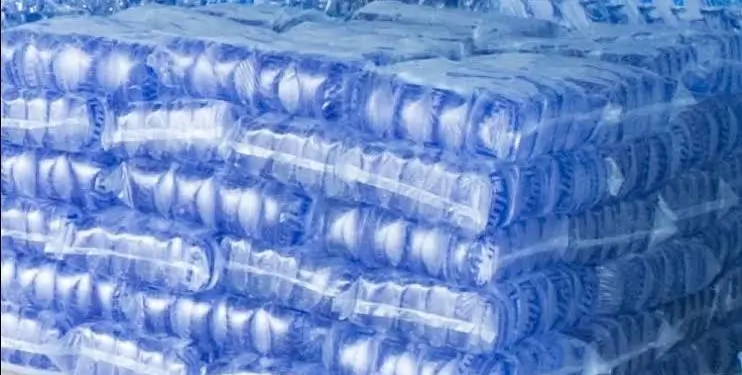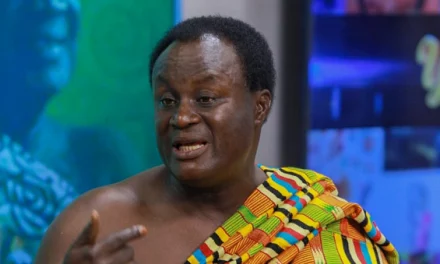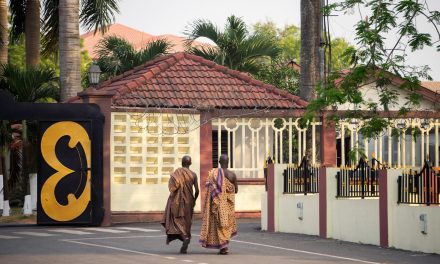
Sachet Water Producers Want 5% Excise Tax on Plastic Scrapped to Avoid Price Hike for Consumers3 min read

The National Association of Sachet and Packaged Water Producers (NASPAWAP) is asking the government to cancel the new 5% tax on finished plastics. The association says this tax will hurt consumers by raising the price of sachet and bottled water.
NASPAWAP says that in most countries, there are no taxes on bottled water. They also point out that many Ghanaians rely on sachet water for drinking because so much of the country’s water is polluted. The association worries that the new tax will make it more expensive for people to buy clean water.
NASPAWAP also says that the plastic industry has always paid for its own waste management. They say the government hasn’t helped pay for collecting or recycling plastic waste.
PRESS RELEASE FROM THE NATIONAL ASSOCIATION OF SACHET AND PACKAGED.
The National Association of Sachet and Packaged water producer (NASPAWAP) will like to add it’s voice to the numerous associations and interest groups, calling on government to suspended indefinitely, the imposition of 5% Excise tax on finished plastics. This call has been necessitated by the hardship this may bring to the final consumer. Water is life and in most countries packaged water in whatever form is exempt from all forms of taxes.
According to a GSS report released in 2023, 72% of urban populations depend on sachet water. The percentage in non-urban population could even be higher due to the extensive pollution of our water bodies due to galamsey operations.
It is therefore unthinkable that excise tax of 5% is being imposed on finished plastic which could inevitably affect the retail prices of Sachet and bottled water.
Since January 2024 prices of bottled and sachet water have seen at least 2 upward adjustments due the rapid and sustained fall of the cedi against the US dollar.
We believe the motive for the 5% extra excise tax would be to raking in funds to tackle the menace plastics is posing to the environment. There is an existing 10% environmental excise tax on selected plastic at the ports of entry. We were part of the decision to tax plastic granules at the entry ports. This method broadens the tax base since all plastic granules are imported. However, at the implementation stage, only a selected few were captured.
Our suggestion to the government is to reinforce the environmental Excise tax at the entry points by reducing the tax rate to 1% and make it applicable to all imported plastic granules without any exceptions. However, Semi finished plastics imported into the country be taxed 10 %. of the cif value. We believe this will rake in more funds for plastic management than the additional 5% Excise tax imposition on finished plastics.
We also wish to put on record that since the inception of plastics in this country, all interventions in respect of managing plastic has been solely borne by the private sector. From the collection point to the recycling stations, there has not been any subsidy from government to the collectors etc.
NASPAWAP is therefore calling on government to heed to the call to suspend indefinitely the additional 5% Excise on finished plastics, and engage with stakeholders. Thank you.
Amicable solution
Meanwhile, the Ghana Plastic Manufacturers Association (GPMA) and its Partners, the Ghana Union of Traders Association (GUTA), the NASPAWAP, the Food & Beverage Association of Ghana (FABAG), and the Plastic Sellers Association of Ghana (PSAG), held a meeting with the Ministry of Trade & Industry on Friday, July 5, 2024, on the issue of the implementation of 5% Excise Tax on all locally manufactured plastic products.
The Deputy Minister for Ministry of Trade & Industry, Michael Okyere Baafi (MP) who sat with the GPMA and its partners gave an assurance that he would facilitate further engagements and dialogue with Government and also immediately trigger the necessary mechanisms and procedures to stop the implementation of the 5% Excise Tax.
To this end, GPMA and its partners, in a statement dated July 8, 204, said it has called off its intended demonstration that was scheduled for July 10, 2024.
The association and its partners also said, “We have put on hold our intended plan to shut-down productions,” appreciating the Deputy Minister for Ministry of Trade and Industry for his intervention.


















